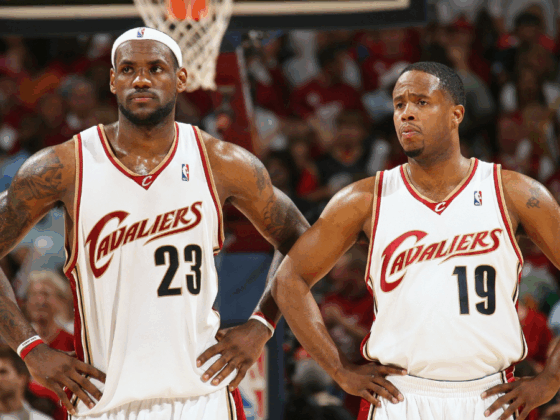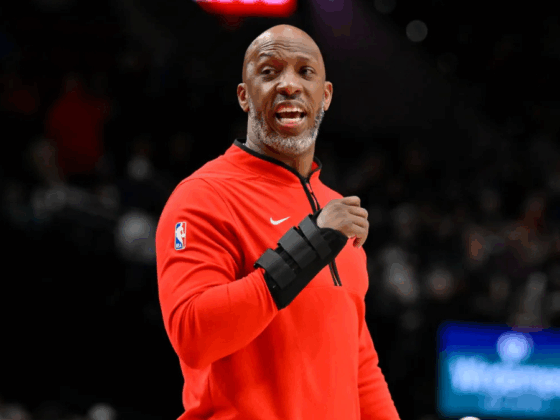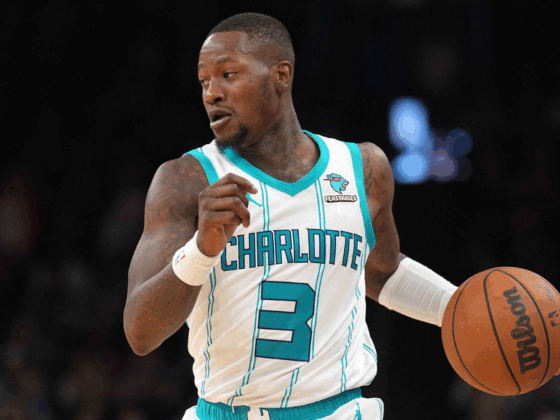
The long-awaited return of Kevin Durant to Oklahoma City has come and gone, with him and the Warriors demolishing the Thunder as any other opponent. It was expected for the Warriors to make quick work of Oklahoma and for Durant to give his former NBA home a reminder of who he is. All of that was a given, along with the reverberation of boos inside Chesapeake Energy Arena.
February 11th was a day for Thunder fans to unleash and show their feelings for Durant after he made July 4th headlines by announcing he’d like to become an employee for the Golden State Warriors. His move was akin to taking a job promotion in a top market where the other weather is typically beautiful, and his teammates are practically foreign to losing. What’s so wrong about that? He made a life decision, but what some fans fail to realize is that they don’t own players and “loyalty” is only thrown around in sports, which is a form entertainment, and the entertainers who are the players.
Loyalty, especially, in sports might as well be known as an alternative fact. That singular word “loyalty” is preached to stars in athletics and difference making players constantly over a certain period of time. It’s a mystical belief that players should stay loyal to a team, organization and fan base that’ll take credit for building them up to the commodity they’ve become. Some fans feel a sense of entitlement with players and view them as their property as if it’s modern slavery. Fans will chant “we” in individual accomplishments or championships, only to boo and turn their back when things go awry.
Where’s the loyalty when it comes to coaches, executives, and owners? Non-existent. An entire organization can change with the exception of the players, and some fans will be completely alright that, because from that point of view it might be seen as a business.

Thunder fans in Durant’s return to Oklahoma were the epitome of being entrenched in fandom. Some arrived at the arena with the idea of hurting their former face of the franchise by attempting to cathartic ally release their hurt feelings onto a city icon by relaying verbal onslaughts in the realm of him being soft: “cupcake… cupcake.”
Durant’s soft, right? Didn’t local Oklahoma City restaurant Mahogany initially deny Durant’s $35K request to rent out the restaurant? Didn’t fans print out old tweets from Durant’s Twitter feed and used them as signs? Let’s not forget the “KowarD” shirts and signs. His departure was taken to heart by people who still have to continue to live their lives the same way they did before and after his tenure in OKC.
Why do fans care so much? They don’t. Unless an individual is benefiting their entertainment in the vicinity of athletics, theater, vocals, literature, etc., then that’s all they’ll care about. 2016 is the perfect example of such a belief. Reason being is because a plethora of notable celebrities passed away throughout that calendar year which led to people calling it the worst year ever. It showed people depend on individuals in the entertainment world far too much and as a society that can be scary.
It’s the lifestyle people in the public eye live due to their talents being a part of a consumer market. For Durant, it’s what he brought on and off the court that is being missed by Oklahoma. He was the perfect citizen and athlete, and the Thunder organization missed a great opportunity to pay immediate tribute to a city and team legend. It’s known the team has in place a rule where video tributes won’t be played for players, but c’mon, Durant is an icon there. For him, that rule should be broken.
Even though his move not being the most favorable one, a video should’ve been shown. The Celtics did it with Ray Allen in his first return to Boston as a member of the Miami Heat, and despite boos from the fans they applauded when the organization gave Allen his moment.
Thunder fans can learn from what the Celtics fan base did as they need to let their disdain for Durant leave their bodies A.S.A.P. They need to start thinking long-term and exit the world pettiness. Time will come when he enters the twilight of his career and could consider returning to where it all began, if not return while he’s still in his prime like LeBron did to Cleveland.
Durant is already a lock to have his No. 35 jersey retired by the Thunder someday and has already punched his ticket to the Naismith Memorial Basketball Hall of Fame when he decides to stop being a scoring machine. When the time comes for both prestigious honors, he’ll undoubtedly speak highly of the city and organization regardless of what happens in between now and his retirement. So, Thunder fans, why not reciprocate the love early and often?
The big question now is this: how long will the vitriol last until Kevin Durant is appreciated there again as a player, and a man?






